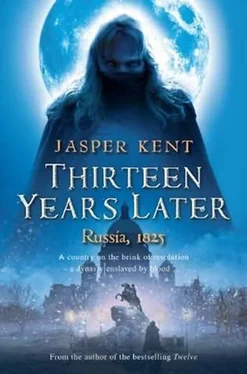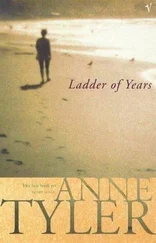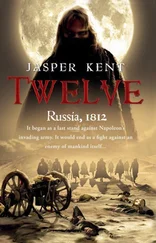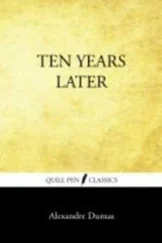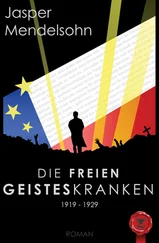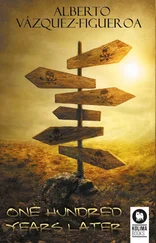
Jasper Kent
Thirteen Years Later
© 2010
Distances
A verst is a Russian unit of distance, slightly greater than a kilometre.
Dates
During the nineteenth century, Russians based their dates on the old Julian Calendar, which in 1825 was twelve days behind the Gregorian Calendar used in Western Europe. All dates in the text are given in the Russian form and so, for example, the Decembrist Uprising is placed on 14 December, where Western history books have it on 26 December.
Names
Names used are transliterations of the Russian spellings. For historical figures, these transliterations can be unfamiliar to readers used to the more common Western renderings. The main examples are:
Pyotr Alekseevich – Tsar Peter I (the Great)
Yekaterina Alekseevna – Tsaritsa Catherine II (the Great)
Pavel Pyetrovich – Tsar Paul I
Aleksandr Pavlovich – Tsar Alexander I
Nikolai Pavlovich – Tsar Nicholas I
Aleksandr Nikolayevich – Tsar Alexander II
I would like to say a sincere thank you to Mihai Adascalitei for his help with the Romanian language.
Selected Romanov Family Tree
Reigning tsars and tsaritsas shown in bold.
Dates are birth-[start of reign]-[end of reign]- death.

On 14 December 1825 (26 December) a crowd of three thousand men – overwhelmingly members of the military – assembled in Saint Petersburg’s Senate Square to oppose the succession of Tsar Nicholas I. The origins of the revolt lay in 1814, when victorious Russian troops, led by Nicholas’ predecessor Alexander, occupied Paris, having pursued the French all the way from Moscow. The nation that they found, even in defeat, seemed to many a utopia of liberty and enlightenment – at least in comparison with their own country. At the same time Alexander, who had once been hailed as a modernizer, began to turn towards more conservative policies. For a decade resentment festered. Revolutionary societies formed and re-formed, but took no action. The death of Alexander, a thousand miles away in Taganrog, was the flashpoint. With confusion as to which of Alexander’s brothers – Constantine or Nicholas – was to succeed, the revolutionaries seized their one, slim chance.
The uprising was quickly suppressed. Loyal troops, at the tsar’s direct orders, opened fire on the rebels, scattering them into flight across the capital. Many were killed and more arrested. Five of the leaders were hanged and a further 284 were exiled to Siberia. Ever after, Nicholas referred to them as ‘mes amis du quatorze’. It was only after Nicholas’ death in 1855 that the exiles – those who were still alive – were allowed to return to the west.
In 1925, one hundred years after the uprising, Senate Square was renamed Decembrists’ Square, in memory of that first Russian revolution. In July 2008, the name was changed back to Senate Square.

Saint Petersburg – 1812
The metropolitan spoke:
‘He that dwelleth in the secret place of the Most High shall abide under the shadow of the Almighty. I will say of the Lord, He is my refuge and my fortress: my God; in Him will I trust.
‘Surely He shall deliver thee from the snare of the fowler, and from the noisome pestilence. He shall cover thee with His feathers, and under His wings shalt thou trust: His truth shall be thy shield and buckler. Thou shalt not be afraid for the terror by night; nor for the arrow that flieth by day.
‘Nor for the pestilence that walketh in darkness; nor for the destruction that wasteth at noonday. A thousand shall fall at thy side, and ten thousand at thy right hand; but it shall not come nigh thee.’
Suddenly the chapel seemed empty; empty of noise, empty of its congregation, empty of the metropolitan himself. Aleksandr perceived only the words, surrounding him not as sounds but as creatures – angels sent by God, sent to convince him of what he must do. And what he had to do was so simple: to trust in God.
That the metropolitan had chosen this day to read those words hinted that God had not trusted Aleksandr to understand His meaning. He had read the exact same words yesterday, quite by chance – or, as he now realized, by design. A clumsy accident had caused a Bible to be dropped to the floor and to fall open at that same text, the ninetieth psalm. And the psalm was but the last of three signs. Aleksandr had read it even then with understanding.
Nor for the pestilence that walketh in darkness; nor for the destruction that wasteth at noonday.
‘The destruction that wasteth at noonday.’ It was clear what that was: Bonaparte – a man who had laid waste to the whole of Europe and who now planned to destroy Russia too. Planned to? He had already made himself a home in the Kremlin.
‘The pestilence that walketh in darkness’ was something different, something Aleksandr had almost forgotten, but never completely. He had learned of the pestilence at his grandmother’s knee, and had never doubted her, as other enlightened grandsons might have doubted stories told them by their frail babushka. Yekaterina had never been frail. She had said that a traveller would come to avenge the Romanov Betrayal, and one such had come, just a week before.
That had been the second sign.
He had called himself Cain, but he was merely the emissary of another. Simply to mention the name of that other – a name Yekaterina had whispered to her grandson many years before – had been enough to allow Cain a private audience with Aleksandr. It had caused consternation amongst many, that this stranger should be so trusted by the tsar even at his country’s darkest hour. It was not trust, though, but fear that had persuaded Aleksandr.
And yet he had discovered that in truth he had little to fear from Cain or his master, just as his grandmother had assured him. All that Cain had to offer was a bargain – a bargain that promised to save Russia from Bonaparte. And Aleksandr had no reason to doubt that it could. But the cost would have been too great. Yekaterina’s strength flowed through Aleksandr, flowed in his veins, and he found it easy to resist, easy to spurn perhaps the last hope that his country had.
Cain had taken the news calmly but he had promised Aleksandr that the offer would be made again, in circumstances when the tsar would be more inclined to agree. More inclined than now, when his country was overrun by a foreign invader? It seemed unlikely, but he doubted Cain as little as he had doubted his babushka.
The first sign had come in a vision.
Aleksandr had expected a visitor, but Cain’s had not been the face he had been anticipating. Alone in his study he had been forewarned, even before Bonaparte had reached Moscow. It was not the first time he had seen through the eyes of another, but it was, so far, the most vivid.
It began with his hands. He had merely glanced down at them, but even a glimpse was enough to tell him that they were no longer his own. His fingers had become broad, squat and coarse, with dirty nails – something that for Aleksandr was inconceivable. Then he noticed he was not alone, nor was he any longer in the palace, but in a dimly lit corridor. There were four men with him but, still gazing at his own fingers, he did not see them clearly. He held the hand of one of them in his, and soon looked up to glimpse the man’s face before kissing him on each cheek, perhaps bidding him farewell.
Читать дальше
